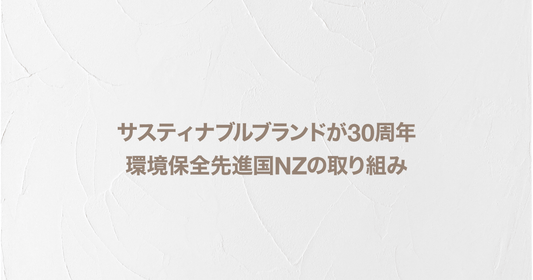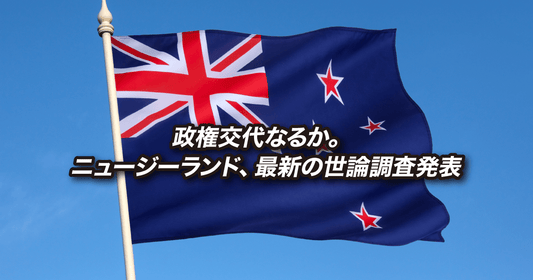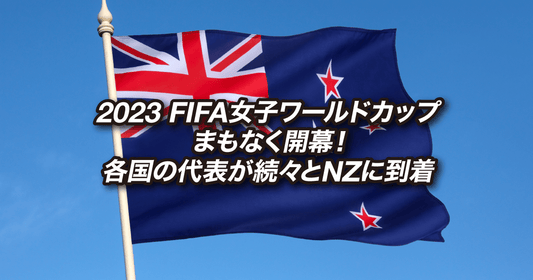
Following a historic victory in last month's general election, Prime Minister Jacinda Ardern will continue in her role as Prime Minister and her second Cabinet has been formed. The swearing-in ceremony took place on November 6th.
The new cabinet is diverse, with many women among its members, and has already been picked up by media around the world, creating a buzz. This is from the Washington Post.
This is from Al Jazeera, a major Middle Eastern media outlet.
Here is the New Zealand public broadcaster reporting the news of the Cabinet formation.
42% of cabinet members are women
With this cabinet reshuffle, the number of female ministers has reached a record high of 42%, up 6% from the previous cabinet. The global average is said to be around 25%, so this is quite high.
New Zealand is known as a country with a small gender gap. In the Gender Gap Index published by the World Economic Forum, New Zealand is ranked 6th in the world for countries with a small gender gap. This index quantifies gender gaps in the areas of "labor," "education," "health and survival," and "political empowerment," and it is this "political empowerment" index that has risen.
Needless to say, she was not chosen just because she was a woman, but because she was selected for her track record and abilities. Some female cabinet members have been demoted. Ardern herself is not the first female prime minister. There have already been three female prime ministers who have been active in the country: Jenny Shipley, the first female prime minister in 1997, Helen Clark, the second female prime minister and the fifth longest serving prime minister, and the current prime minister, Jacinda Ardern.
By the way, the woman in the pink suit in the middle of the group photo is Patsy Reddy, the 21st Governor-General of New Zealand. Although not well known in Japan, she is the de facto head of state appointed by the British King. She is the third woman to hold the position.
Openly gay deputy prime minister
Grant Robertoson, who was Minister of Finance, is now Deputy Prime Minister. He will continue to serve as Minister for Finance. There are 53 ministerial positions in New Zealand, and most ministers hold multiple positions.
The current cabinet includes four LGBTQ members, including Deputy Prime Minister Robertson. Deputy Prime Minister Robertson is openly gay,
I think it's very important for LGBTQ people, especially young people, to be able to recognize that a position like Deputy Prime Minister can be held by someone from the LGBTQ community.
He commented,
First Māori female foreign minister
Nanaia Mahuta was appointed as the first female Minister of Foreign Affairs. In this cabinet reshuffle, many cabinet ministers were appointed who are of Maori descent, the indigenous people of New Zealand, and Mahuta is one of them.
Tattoos on the lips and chin are traditional Maori tattoos, called Moko kauae, and represent one's lineage and culture. For the Maori, the face and head are sacred. Since the tattoo is placed there, the tattoo itself is considered particularly sacred. Minister of Foreign Affairs Mahuta is the first cabinet member to have this Moko.
Following the appointment of Foreign Minister Mahuta,
His facial tattoos are ugly and not of a sophisticated civilization. He is not fit to be a foreign minister who stands in the world.
The New Zealand author was immediately criticized for his comments being racist and disrespectful to Maori culture, and the uproar escalated to the point where his works were removed from online shops.
A few years ago, there was an issue in Japan when a hot spring facility in Hokkaido refused to allow a Maori woman with this tattoo to bathe.
In New Zealand, due to the introduction of Christianity by European immigrants, there was a movement to view Maori tattoos as immoral, and the number of people getting tattoos decreased. In recent years, there has been a growing movement to protect the Maori people, their language, and their culture, and the number of people getting Maori-derived tattoos is increasing again.
It's not just the Cabinet that is diverse. The Parliament that was born out of this election is also diverse. 25% of the parliament is of Māori descent, 47% are women, and about 10% are LGBTQ people.
The New Zealand public is counting on the government to contain the spread of COVID-19 and rebuild the economy which has been hit by the virus.





